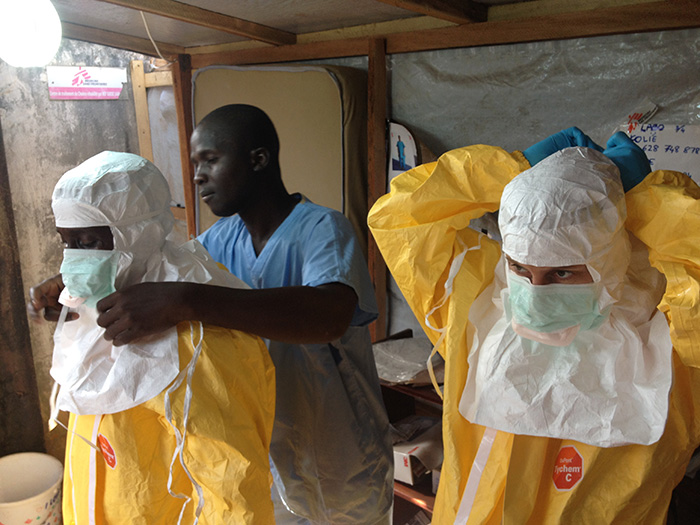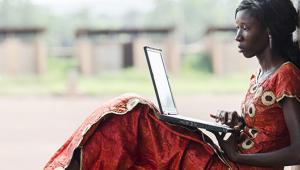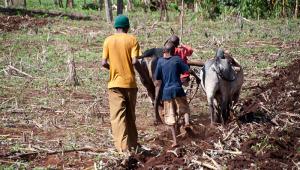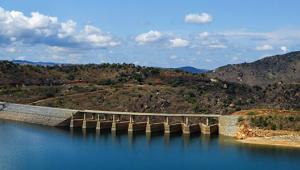ebola-team-c-european-commission-dg-echo.jpg

A medical team during the Ebola outbreak. Credit: European Commission
The Africa Centers for Disease Control and Prevention (Africa CDC) was officially launched last week at a summit of the African Union, whose membership includes every nation on the continent.
African leaders formally endorsed the idea of an African CDC last year. With the memory of the 2014-16 Ebola crisis – which quickly proliferated and left more than 11,000 people dead – still fresh, they urged for its establishment to be fast tracked.
Backed by a portion of the AU’s budget contributed by its members, the Africa CDC will work to prevent another crisis like Ebola, for which African nations and the world were sorely underprepared.
It will support AU member states in preventing, detecting and responding to public health threats by improving areas such as monitoring, early warning systems and response capacity.
While based at the AU headquarters in Addis Ababa, Ethiopia, it will have centres in every region of the continent and work closely with other national, continental and international health organisations and the private sector.
Its first job will be to take the lead on delivering another commitment made by African heads of state last week – to ensure universal access to vaccines across the continent by 2020.
After making substantial gains on immunisation, in recent years the continent’s progress has stalled and it is falling behind on meeting global immunisation targets.
Outgoing African Union Commission chair, Nkosazana Dlamini-Zuma, said that universal access to immunisation was achievable and this “historic pledge” brought it closer than ever.
Under the pledge, countries are expected to increase their political and financial investments in their immunisation programmes.
Overall, it encompasses 10 commitments including on increasing funding, strengthening supply chains and delivery systems and making universal access to vaccines a key element of health and development efforts.
“As long as even one child in Africa lacks access to immunisation, our work remains unfinished,” said Ala Alwan, World Health Organization regional director for the Eastern Mediterranean.
“With the right mix of political will, financial resources and technical acumen, Africa can – and will – stem the tide of vaccine-preventable diseases across the continent.”
Currently, one in five children in Africa do not receive the most basic vaccines. Measles, for instance, still accounts for around 61,000 preventable deaths every year.
Fewer than 15 African countries fund more than 50% of their national immunisation programmes. However, the WHO warned that, as the continent moved towards eradicating diseases like polio and more countries approached middle-income status, international funding would be scaled back so African governments would have to redouble their efforts.
The WHO also emphasised the economic benefits of vaccinations, which it said was one of the most effective and cost-effective public health tools available.
It noted that vaccination could save between two and three million lives every year and yield economic dividends as much as 44 times greater than the initial investment as children stayed healthy, remained in school and grew into productive adults.
At the same time, their families, communities and governments saved on health costs and could reinvest the money and time spent on caring for sick children.
Matshidiso Moeti, WHO regional director for Africa, said: “When children are given a healthy start, communities thrive and economies grow stronger.
“This show of support from heads of state is a significant step forward in our efforts to achieve universal immunisation and, ultimately, improve child health and sustainable development across Africa.”













